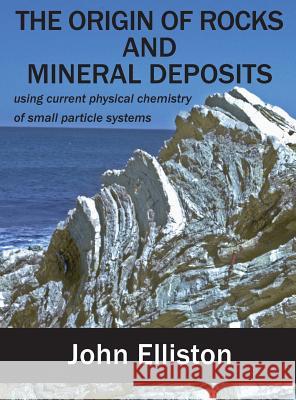The Origin of Rocks and Mineral Deposit: using current physical chemistry of small particle systems » książka
The Origin of Rocks and Mineral Deposit: using current physical chemistry of small particle systems
ISBN-13: 9781925501360 / Angielski / Twarda / 2017 / 706 str.
The scientific method seeks to explain natural phenomena using natural laws, verifiable and reproducible observations and measurements that validate logical conclusions. Two outstandingly successful Australian research projects based on correct use of the scientific method have resulted in this interdisciplinary research that introduces significant new knowledge. The application of colloid science in this book has embraced the geological sciences in a coherent and compelling way. In 1998 Professor T. W. Healy led a team of Particulate Fluids Processing Centre researchers at the University of Melbourne. They were successful in adapting an atomic force microscope to measure forces between colloidal particles due to their surface charge. This substantiates the research of John Elliston's team of exploration geologists and their advisors. From the 1960's they have claimed that natural sediments are immense accumulations of high-energy particles containing colloids (particles 1 to 1,500 nanometers in size). When they are mobilised such as by earthquake shocks, these can achieve a more stable condition by aggregating to close-packed clusters. Heat is generated by chemical reactions when the particle clusters finally crystallise to metamorphic, porphyroidal or granitic rocks. This fundamental research now resolves many long standing problems in the Earth sciences and the new understanding of the way that mineral deposits are formed has been shown to lead to much more efficient and cost effective mineral exploration. Application of these two innovative research achievements will certainly benefit economic development. Carey, 1996, p.26 recognised this new knowledge, "years of intensive world-wide study of porphyroids, orbicules, and rapakivi granites demonstrated how these developed through colloidal processes." This new geological theory "has the same importance to that subject as Darwin's to biology" (Ninham and Nostro, 2010, p. 72).











